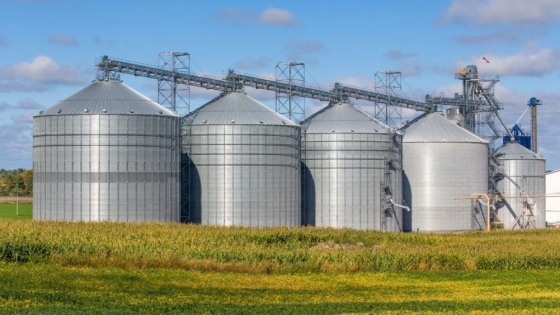(VAN) ‘Agriculture is a supply-side driven market right now, and prices are in the doldrums,’ said Stephen Nicholson, the global sector strategist for grain and oilseeds at Rabo AgriFinance.
The US grain and feed industry will have several issues to navigate in 2025, including a difficult rural economy, shifting political realities, and possible extreme weather on the horizon, according to speakers at the 53rd Country Elevator Conference hosted by the National Grain and Feed Association (NGFA).
“Agriculture is a supply-side driven market right now, and prices are in the doldrums,” said Stephen Nicholson, the global sector strategist for grain and oilseeds at Rabo AgriFinance.
These low commodity prices are negatively affecting working capital and squeezing profit margins across the agricultural supply chain, he said.
Nicholson’s presentation highlighted several uncertainties for US agriculture in the near term, shaped by weather, trade and policy dynamics. Adding to the pressures are increasing US stocks of corn, wheat and soybeans, growing global export competition, and negative margins at the farm level that may result in fewer acres planted in 2025.
But there are pockets of opportunity.
“Lower wheat export volumes from the EU and Russia have created opportunities for other major producers like Canada and the US,” Nicholson said.
In addition, the biofuels market and emerging export opportunities in the EU, Mexico, India and Vietnam are potential bright spots.
Changes in Washington, DC, also may provide relief, said Jim Wiesemeyer, a Washington policy analyst for Pro Farmer.
“Trump 2.0 is bringing in agents of change,” he said, explaining that the president-elect has even stronger support in rural America this time around.
Deregulation, an extension of tax cuts, renewed interest in production agriculture, and increased domestic energy production are among the opportunities for rural America that Wiesemeyer noted. He also told the group he expects a farm bill extension and disaster assistance package to be passed before the end of the year.
Wiesemeyer said the disaster assistance package is needed because of recent devastating weather events across the country, and Dr. Reed Timmer, a meteorologist and extreme weather expert, told the crowd that he expects more of the same next year.
“In the last three years, we’ve been chasing more storms than ever,” Timmer said.
He is predicting powerful tornadoes in the Great Plains and southeastern United States in 2025 because of underling weather patterns across the Pacific Ocean.
Drought conditions in the Midwest may also worsen over the next few years. Hurricane seasons are harder to predict, Timmer noted, but said the end of the 2024 season made it the second most damaging year ever.
NGFA sponsors the annual CEC convention, bringing hundreds of professionals from across the grain and feed sectors for networking, education sessions, and a supplier trade show.
Agriculture News | Agri Products Price



